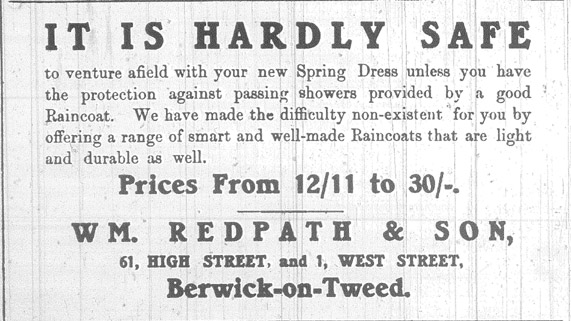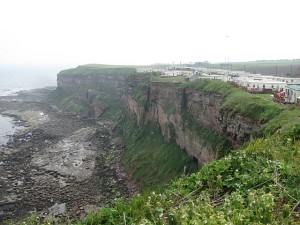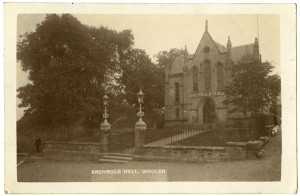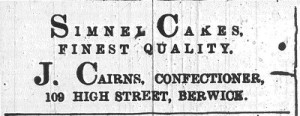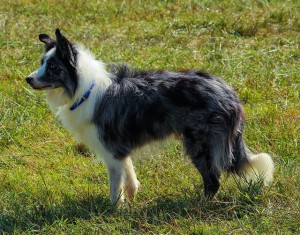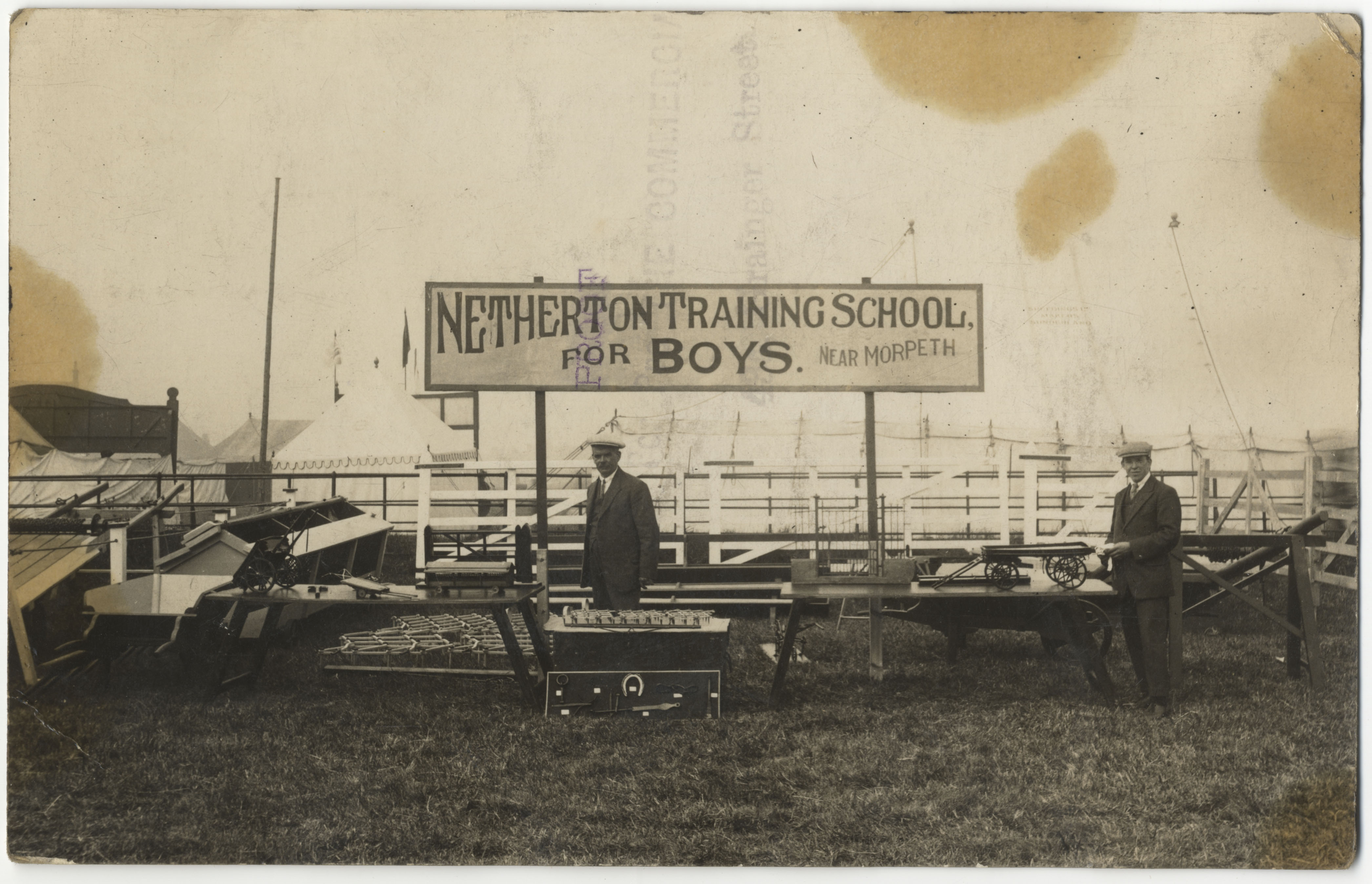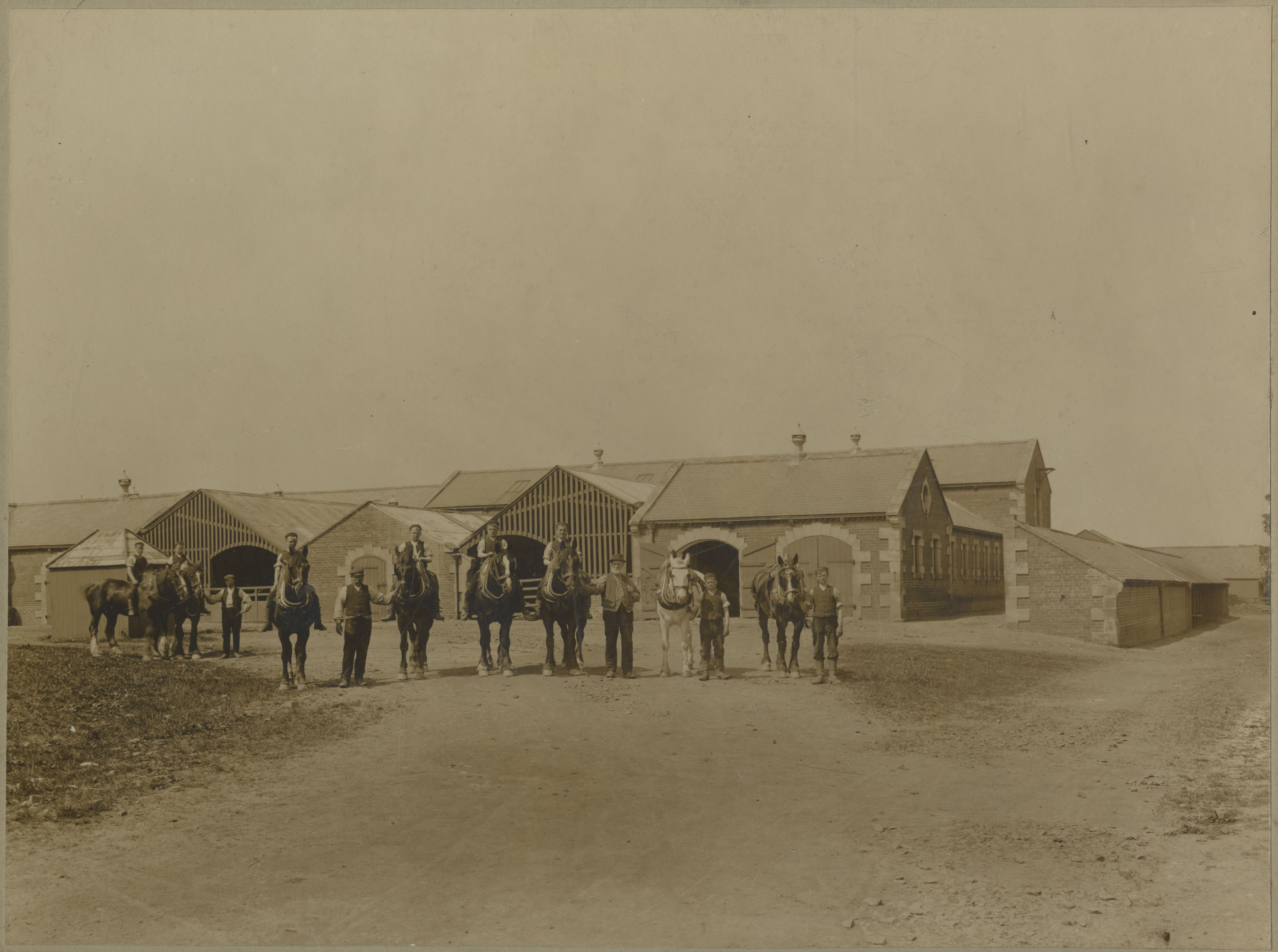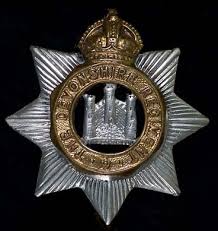APRIL 9TH 1915
SKILLFUL SEAMANSHIP
Steamer’s Escape From Pirates Off Berwick
Captain A. Findlay, of the steamer Helen, of Glasgow, reported to the ship’s owners, Messrs G. T. Gillie and Co., of Newcastle, an exciting experience off Blyth.
“About 7.10a.m. on Monday,” he said, “a large steamer passed us, flying his code number and a Dutch ensign aft. I was on watch myself, and thought it curious, as we could see nothing to make him fly his number.
“About 7.20 a.m. we sighted a submarine coming straight for us. We were then about seven miles off Berwick, and I at once headed the ship straight for the land and told the engineers to get the utmost speed they could out of the steamer. We worked up to top speed, and the submarine followed, trying hard to get on our quarter. I kept porting out helm to keep him right astern. He gradually got nearer, but as we were drawing close to Berwick he gave up the chase at 7.50a.m. and stopped. We got a fine sight of the submarine as she was only half a mile from us then. He was flying no flag, and I could not see his number.
PIRATE’S RIFLE SHOTS OFF LONGSTONE
Firing Without Warning at Trawler’s Crew
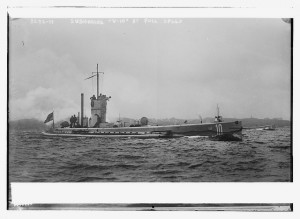
The Acantha was on a return journey from the White Sea with a cargo of fish valued at £2,000. On Monday afternoon about one o’clock the crew were astonished to hear the report of guns and of shots striking the trawler. A submarine was then sighted heading for the Acantha at high speed and firing from rifles and a small gun on her deck as she came on. A zigzag course was steered by the trawler with the intention of avoiding any torpedoes which might be discharged, but against the greater speed of the submarine the trawler could not escape.
The Germans were content to rely on their small gun, and shots from this holed the Acantha so badly that she began to fill. Captain Pederson, of the Acantha, ordered the crew to the boats, and while the life-boat on the weather side was being launched the pirates peppered the trawler with rifle shots, but as J. Oatley, the chief mate, observed, the shooting was bad and no one was hit. After the small boats had cast off those on the submarine continued firing at them with their rifles, and several shots struck the boats, making holes in the gunwales. None of the crew was struck.
The Acantha apparently did not sink speedily enough for the Germans, for when the crew’s boats were
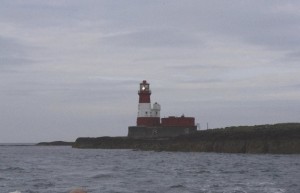
four or five hundred yards off a torpedo was fired at the trawler, which sank with a large explosion. Captain Pederson said the submarine did not give any warning, but opened fire at once. He saw it quite distinctly. It was painted white, but there were no numbers or letters on the sides.
The submarine stayed in the vicinity for some time after sinking the Acantha, and then went south. After being in their boats an hour and a half the crew were picked up by the Tord.
BAMBURGH
Bamburgh Work Party.-During the first three months of the year the ladies of the above party have been busy making garments, etc., for our troops at home and abroad. The articles made are as follows:-Shirts, 44; socks, 90 pairs; mufflers, 24; mittens, 36; beside bed socks, helmets, slippers, etc…
…The work has been forwarded to the Northern General Hospital, to Major Beal, for the 11th Battalion Northumberland Fusiliers; and the Miss Grey, at a hospital in France.
Bamburgh Red Cross Society.- The members of the above have since the arrival of the Northern Cyclist Battalion in Bamburgh undertaken the cooking for the hospital of that section of troops. They have, in addition to the army rations, been able to supply the invalids with many extras, which have been kindly contributed by the following:- Misses Morpeth, Mrs Macaskie, Mrs Williams, Mrs Shields, Mrs Littlefair, Mrs Thompson (Shoreston Hall), Miss Broadbent, Mrs Laing, Mrs Smeedle, Miss Hutchinson, Mrs Keys, Mrs Marshall, Mrs Little, Miss J. Weatherston, Miss Ross, Miss Hall, Mrs McDougal, Miss M. Ross, Miss M. Wallace, Mrs Hart, Mrs Freeman (Bells Hill), Mrs Dryden and Miss J. Clarke.
